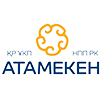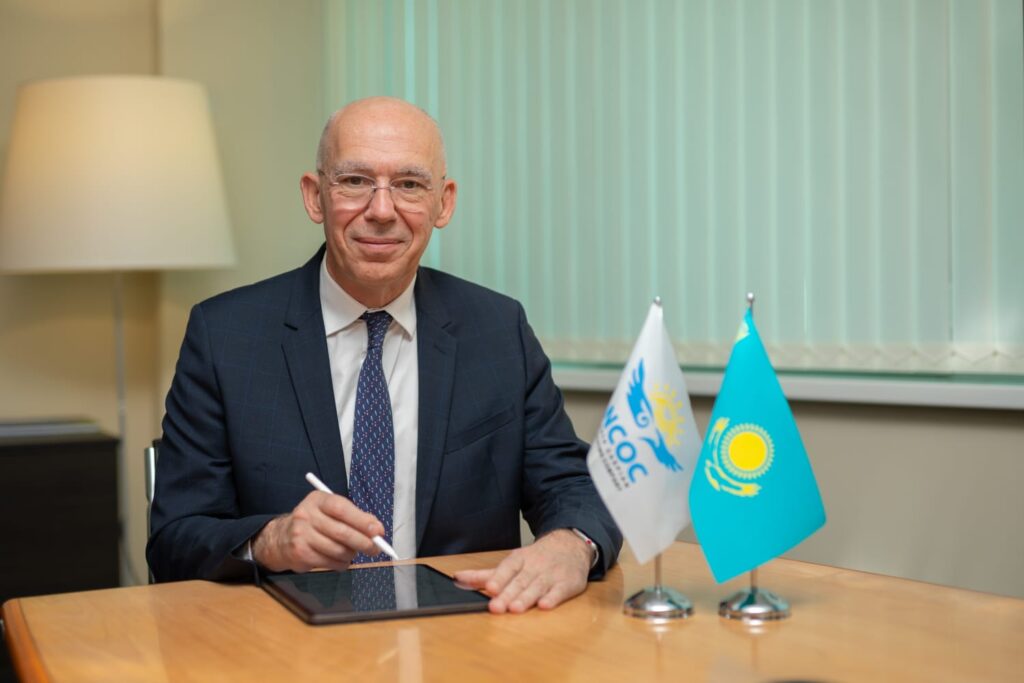
On the occasion of the 30th anniversary of the North Caspian Project
2023 marks the 30th anniversary of the execution of an agreement establishing a Consortium for conducting research in the Kazakhstan sector of the Caspian Sea. We are talking to NCOC Managing Director, Mr Olivier Lazare, about the achievements of the North Caspian Project marking the anniversary.
- Mr Lazare, what milestones in the implementation of the North Caspian Project would you highlight?
First of all, let me mention that Kazakhstan is a unique country in its economic potential and substantial development opportunities. For the past 30 years Kazakhstan has been attracting foreign investments which support its dynamic development. One of such major projects is the North Caspian Project and the development of the Kashagan field.
At the initial stages of the project, people engaged in the exploration and development of Kashagan, the first offshore field in the history of Kazakhstan, faced enormous challenges, taking into account all the environmental and logistical features of the North Caspian Sea.
In peak periods, over 8,200 people were engaged in offshore construction alone. Their dedicated efforts produced first-ever offshore islands in the history of a country – A and D Islands, and EPC-2, 3, 4 with 40 development wells in total. D Island became the first operational hub in the Kashagan field which is used for crude production and gas re-injection.
Similar difficulties were encountered during the construction of the Bolashak Onshore Processing Facility, for which specialized equipment was delivered from different parts of the world. Currently, the OPF processes sour oil and sour gas in three parallel oil trains and two parallel gas trains. To support the OPF operations we have built about 17 km of access roads and 25 km of new railway lines as well as two railway stations.
Another important facility is the Bautino Base in Mangystau Oblast. It is the main logistics support base for the Kashagan field which provides support for offshore operations, marine fleet coordination, along with supply and storage of materials, equipment and fuel. Moreover, one of the main purposes of the Bautino Base is emergency oil spill response in the entire offshore area of operations carried out under the Production Sharing Agreement in respect of the North Caspian Sea.
And we shall not forget the service infrastructure built around production facilities, including camps for our employees and partner companies. We have created comfortable conditions for work and rest of rotation-based staff.
The full-scale development and construction of the above-mentioned facilities took more than a decade and it has been a challenging journey. As a regional media, you are very well aware of the events in the history of the North Caspian Project. We have experienced some ups and downs, change of the operating model, start of production and subsequent pipeline replacement, production restart, the COVID-19 pandemic, and the slug catcher issue earlier this year.
Despite all those challenges we managed to produce over 80 mln tonnes of oil and over 46.4 billion Sm³ of gas, which makes NCOC one of the leading oil producers in Kazakhstan. But all these achievements wouldn’t have been possible without our skilled and competent people who we are rightfully proud of. Since the very early stages of the Project, we have been investing in training and professional growth of our staff. Back in 2002, the Consortium launched a unique training program for graduates as part of the international projects with subsequent employment in the Company’s future operations. Today we see the successful outcomes of this 14-year program. In total, 1,014 trainees completed the program, 597 trainees currently work in NCOC, and 107 hold leadership positions within our Company.
As of now, our Company employs about 2,700 people, out of which nearly 2,600 are Kazakhstani nationals. Over 9,000 of Kazakhstani people work for the Kashagan Project contractors. And the number of local staff in managerial positions is impressive – 89%, considering the complexity of the Project. So, the investments into personnel during the 30 years of the Project implementation have brought up a suite of Kazakhstani specialists in the field of providing and supporting offshore oil production, and we take pride in this.
As Kazakhstan’s largest foreign investment project, the North Caspian Project has a powerful multiplier effect on the national economy. We are working hard to maximise opportunities for local content development. Since 2004, the North Caspian Project has spent over $16bln for work, goods and services. NCOC supports local companies in their international certification for management systems, certification of goods and services, thus significantly enhancing their competitive ability. As such, NCOC supported 225 local companies to obtain international standards certifications (American Society of Mechanical Engineers (ASME), American Petroleum Institute, ISO. Moreover, for the past 20 years, the Company has conducted about 500 technical qualification audits of local companies and site visits to assess their ability to meet strict technical specifications and international codes and standards for goods and services put out for bid by the North Caspian Project. Additionally, craft skills training was arranged for more than 5,300 employees of local companies in such demanding areas as Confined Space Work, Welding Operations Safety, Mobile Crane Operation, Working at Height, Electronic Systems and Devices, etc.
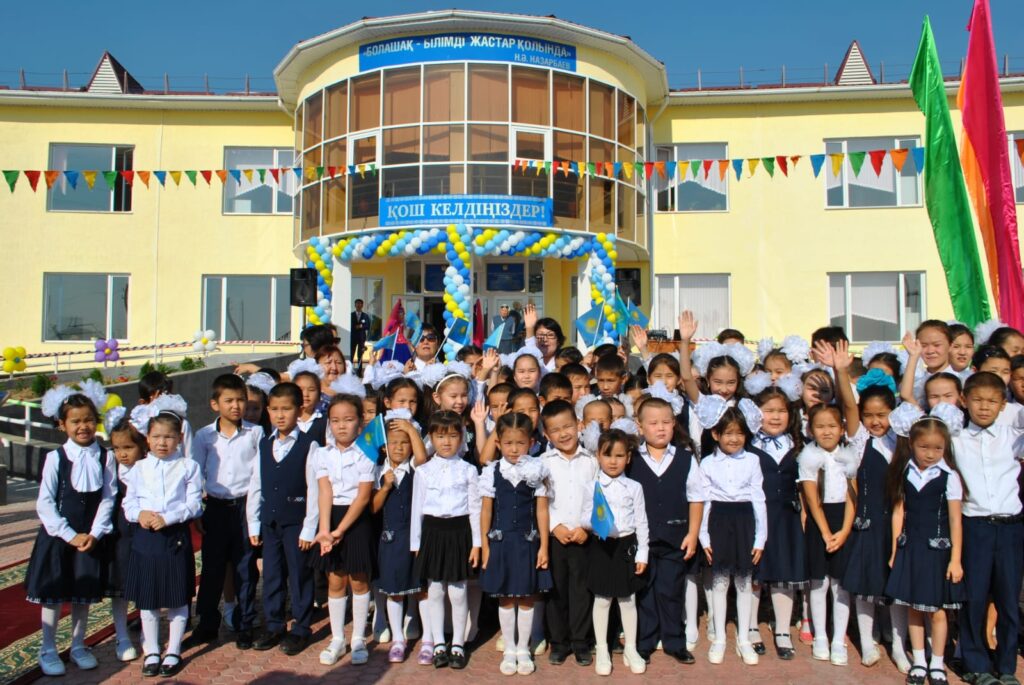
NCOC provides generous support for the benefit of the Atyrau and Mangystau communities through its Social and Infrastructure Projects (SIP) and Sponsorship and Donation (S&D) Programs. Since 1998 the Consortium has implemented 226 social and infrastructure projects for a total amount of over $860mln. These include schools, kindergartens, hospitals, sports facilities, as well as utilities such as roads, electric power and water supply lines, gas pipelines. Many of these social facilities have been built in small settlements of Atyrau and Mangistau regions and allow children and adults living in rural areas to get quality education, medical services, maintain healthy lifestyle and enjoy other benefits. In addition, NCOC have invested over $25mln in 1,450 community projects to directly support socially vulnerable population.
One of the objectives of our community projects is contribution and improvement of the level of children’s education in the regions where we operate. We donated modern STEM labs to 12 schools in Atyrau and Mangystau Oblasts. STEM is a new method of teaching students and a major trend in global education. Students also study programming and engage in robotics at a professional level.
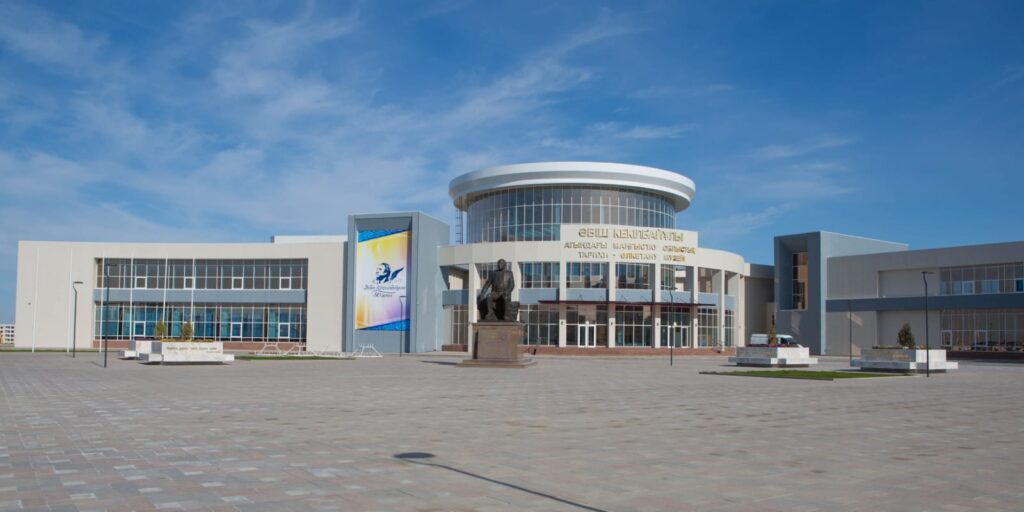
Another success case of supporting local educational institutions is a three-year innovative project for remote learning of English language in Atyrau Oblast, delivered by NCOC jointly with the British Council in Kazakhstan. The project involved 7 secondary schools of Atyrau, one secondary school in Makat settlement and the Atyrau State University. In total, 573 school and university students participated in this project.
Moreover, NCOC assisted the Kazakhstan Maritime Academy by supporting a three-year program in cooperation with KMA’s parent institution, the Kazakhstan-British Technical University. Over 3 years the Company provided significant funding for upkeeping marine simulators and sponsored sea survival training and International Maritime Organization certification programs for 26 national cadets. These are basic prerequisites to put Kazakhstan on the “whitelist” of the International Maritime Organization, which is another inspiration for us.
I am proud of the great work delivered by the big NCOC team and the recent award of the Paryz Grand Prix to our company is the recognition of our joint efforts of the Operator, its shareholders and Kazakhstan regional and central authorities as well as personal contribution of each and every one of us. We will continue to work and achieve all set goals thereby contributing to further prosperity of the Republic of Kazakhstan and improving social well-being of its population.
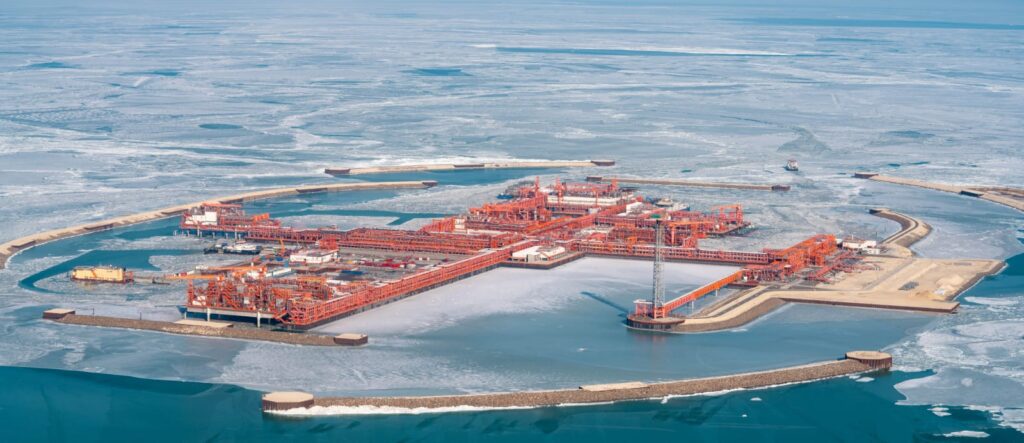
- Mr. Lazare, has Kashagan reached the design capacity after the Turnaround?
NCOC is producing at planned volumes (over 400 kbpd) while ensuring safe operations. The facility is now maximized to the design constraints established for onshore/offshore gas processing units, which limit oil production. It is for this reason why we plan to implement 1BCMA project in the future which will help with further gas processing and allow designed oil production.
- Several months ago the Atyrau Oblast Department of Industrial Safety Committee informed about violations at the Company’s production facilities. Have the violations been remedied and what has been done to prevent such incidents?
I would like to note that the instructions issued by Atyrau Oblast Department of Industrial Safety Committee to eliminate violations related to wells and offshore pipelines have been withdrawn during control check by provision of evidence demonstrating compliance with the existing regulations.
NCOC regularly performs its own checks/inspections in line with the best international practices. The Company is continuously working on improving its operations to meet both RoK and international requirements related to industrial safety.
- The RoK President Kassym-Jomart Tokayev has instructed to speed up the construction of a Gas Processing Plant in Atyrau Oblast. What steps has NCOC been taking to implement this project?
Let me clarify that NCOC’s participation in the construction of a gas processing plant is limited to raw gas supply in the amount of 1 billion cubic meters of raw gas per year.
As I noted earlier, our facilities currently operate within the design constraints established for onshore/offshore gas processing units, which limit oil production. For this reason, we plan to implement 1BCMA project in future which will help with further gas processing and allow designed oil production.
In pursuit of this goal, NCOC is to install a sour gas pipeline from the Bolashak OPF to the third-party gas processing plant, and implement other minor modifications required to the existing offshore and onshore facilities. These projects are being delivered on schedule including pipeline tie-ins performed during Turnaround 2022.
- Thanks to the air quality monitoring stations installed by NCOC, Atyrau residents can monitor pollutant levels in the city on a daily basis. Are there any plans to expand this project in the regional centre?
Indeed, supported financially and technically by NCOC, 20 automatic air quality monitoring stations for continuous 24/7 monitoring of the air quality were installed in Atyrau city and Atyrau Oblast which is twice the quantity required by the RoK legislation on air quality monitoring. 4 stations are located along the perimeter of the 7-km sanitary protection zone of the Bolashak OPF, 7 more stations are installed in the nearby and remote OPF settlements including Dossor and Makat, and 9 stations are located in Atyrau city. All AQMS in Atyrau are installed by NCOC on a voluntary basis in coordination with the local executive body and environmental authorities.
Additionally, since 2016, the Company has been carrying out modernization and upgrading of the stations, including enhancement of the data transfer system to reduce the data deference time, resulting in the interval reduction to 1 hour, etc. The phased upgrade of the measuring tools at all stations will continue.
- Thank you for the interview!

